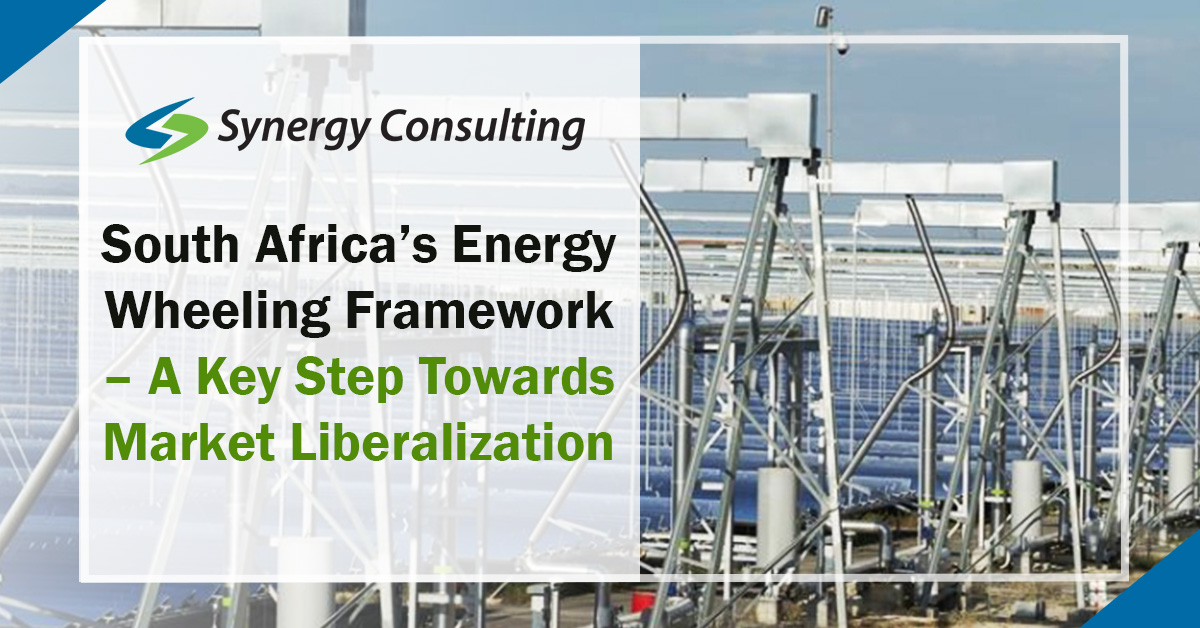Akhilesh Goyal, Associate Director and Harsh Sharma, Senior Associate at Synergy Consulting, Inc., shares his views on South Africa’s energy wheeling framework – a key step towards market liberalization.
South Africa’s energy story is marked by systemic impediments and formidable challenges but also by consistent progress in different realms. While transmission continues to act as a bottleneck in the country’s transition from conventional to green energy, the regulatory improvements in wheeling arrangements as well as the refinements in the framework have paved a long way to fillip the impetus towards energy market liberalization.
RSA started liberalizing its energy market in 2011 when it launched REIPPPP round 1 to allow independent power producers to compete with Eskom, the state-owned power generator. Albeit, REIPPPP rounds continued with substantial fervor, Eskom continued to hold effective monopoly on power transmission and offtake. With an integrated utility, the country kept facing structural challenges around competition, regulatory framework and transparency that have marred similar geographies around the globe.
A revolutionary upheaval, however, came in August 2021, when President Cyril Ramaphosa announced the increase in the exemption threshold for embedded generation projects from 1 MW to 100 MW. This meant that any private power generation project up to 100 megawatts (MW) could be developed without applying for a generation license from the national energy regulator, NERSA, as long as it was grid-connected, and registered with NERSA, even though a formal license was no longer required. Earlier, Independent Power Producers (IPPs) aiming to develop power plant for C&I (Commercial and Industrial) generation, were required to apply for a full-fledged NERSA license, in case the plants exceeded 1 MW. Application for the NERSA license used to be a process marked by prolonged delays leading to a convoluted and protracted process.
In December 2022, RSA achieved another key milestone by removing the 100 MW cap as well. This led to a further liberalization of the market and a sudden entry of IPPs into the energy mix. With all these major overhauls, transmission became a major point of contention in the RSA’s energy regime. Albeit transmission woes continue to provide a bottleneck to various key regions (such as the Northern Cape province), and full unbundling of Eskom is still to be completed, RSA’s wheeling framework is a commendable part of the unbundling vision and has enabled the country to progress on its way towards a greener future.
To read the full article click on the link: https://lnkd.in/gFSzAptC
